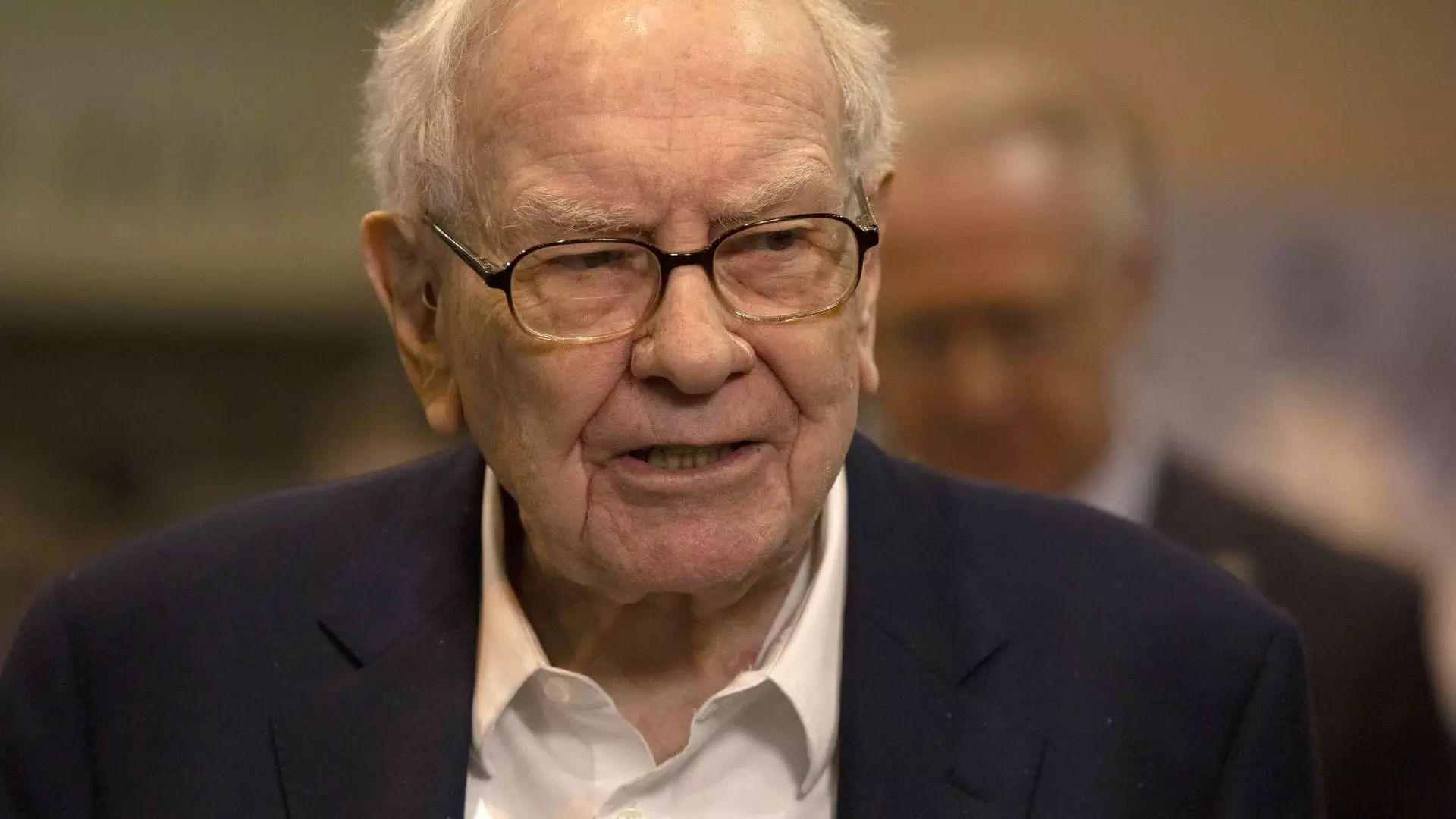Berkshire Hathaway is renowned for its strategic financial maneuvers, often characterized by a keen understanding of market dynamics and investment opportunities. Recent reports indicate that the cash reserves of this Omaha-based conglomerate have surged past $300 billion, marking an unprecedented high of $325.2 billion by the end of the third quarter. This dramatic increase is not merely a result of favorable business operations; it is deeply intertwined with Warren Buffett’s ongoing stock-selling strategies and a cautious approach towards share buybacks. A closer examination reveals that while Warren Buffett, often referred to as the Oracle of Omaha, continues to sell off portions of significant equity holdings, the implications of these actions on future growth prospects are critical to analyze.
In the third quarter alone, Berkshire Hathaway divested approximately $36.1 billion worth of stocks, with substantial reductions in positions such as Apple and Bank of America. Notably, the conglomerate liquidated about a quarter of its massive investment in Apple, reflecting a strategic shift that has persisted for four consecutive quarters. Additionally, the sale of Bank of America shares has yielded over $10 billion since mid-July. This trend of stock sales raises questions regarding Buffett’s investment philosophy in a booming market environment. The increasing cash reserves, while indicative of financial stability, signal a more cautious and perhaps defensive approach rather than aggressive capital allocation into growth opportunities.
Traditionally, Berkshire Hathaway has been known for its share repurchase activity, a tool the company utilized to support its stock price when deemed undervalued. However, recent patterns illustrate a severe decline in buyback operations. The third quarter report indicates no share repurchases took place, a noticeable departure from the robust buybacks of previous periods. Earlier in the year, Berkshire allocated a mere $345 million for this purpose, significantly lower than the $2 billion repurchased in preceding quarters. This dip can be attributed to the company’s stock experiencing remarkable growth, with Class A shares up by 25% year-to-date, surpassing the S&P 500’s 20.1% increase. Nevertheless, the strategic choice to forgo buybacks communicates a cautious stance in the face of fluctuating market conditions.
Despite a robust market performance, Berkshire’s operational earnings faced a slight decline, totaling $10.1 billion—down 6% from the previous year due to challenges in insurance underwriting. This figure fell short of analysts’ expectations, raising concerns about the sustainability of earnings in a volatile economic landscape. It appears Buffett’s conservative outlook may reflect broader anxieties regarding macroeconomic factors, including inflation management and shifting interest rate policies by the Federal Reserve. The recent rise in the 10-year Treasury yield above 4% exemplifies the unpredictable nature of interest rates, creating challenges for investors who have grown accustomed to a more stable market environment.
The motivational undercurrents of Buffett’s selling activities seem increasingly influenced by the political landscape and fiscal policies. Notable investors have expressed trepidation regarding the expanding fiscal deficit and lack of commitment from political leaders to implement necessary spending reforms. Buffett’s strategic moves, including the divestment of stock holdings, might be viewed as a preemptive measure anticipating potential increases in capital gains taxes designed to address burgeoning budget deficits. His caution resonates with an understanding of historical trends wherein tax regimes invariably impact investment strategies and market behavior.
While Berkshire Hathaway exhibits impressive cash reserves and significant stock market performance, the underlying strategies warrant scrutiny. Buffett’s selling of key investments, the hesitation to repurchase shares, and the slight decline in operational earnings all depict a landscape fraught with challenges. Investors and market analysts must remain vigilant in tracking these developments, as the strategic decisions made in the coming quarters will be crucial not only for Berkshire Hathaway’s future but also for understanding overarching economic trends influenced by fiscal policy and market dynamics. Berkshire Hathaway, under Buffett’s stewardship, is emblematic of a cautious philosophy that prioritizes long-term stability amid the uncertainties of today’s financial world.

